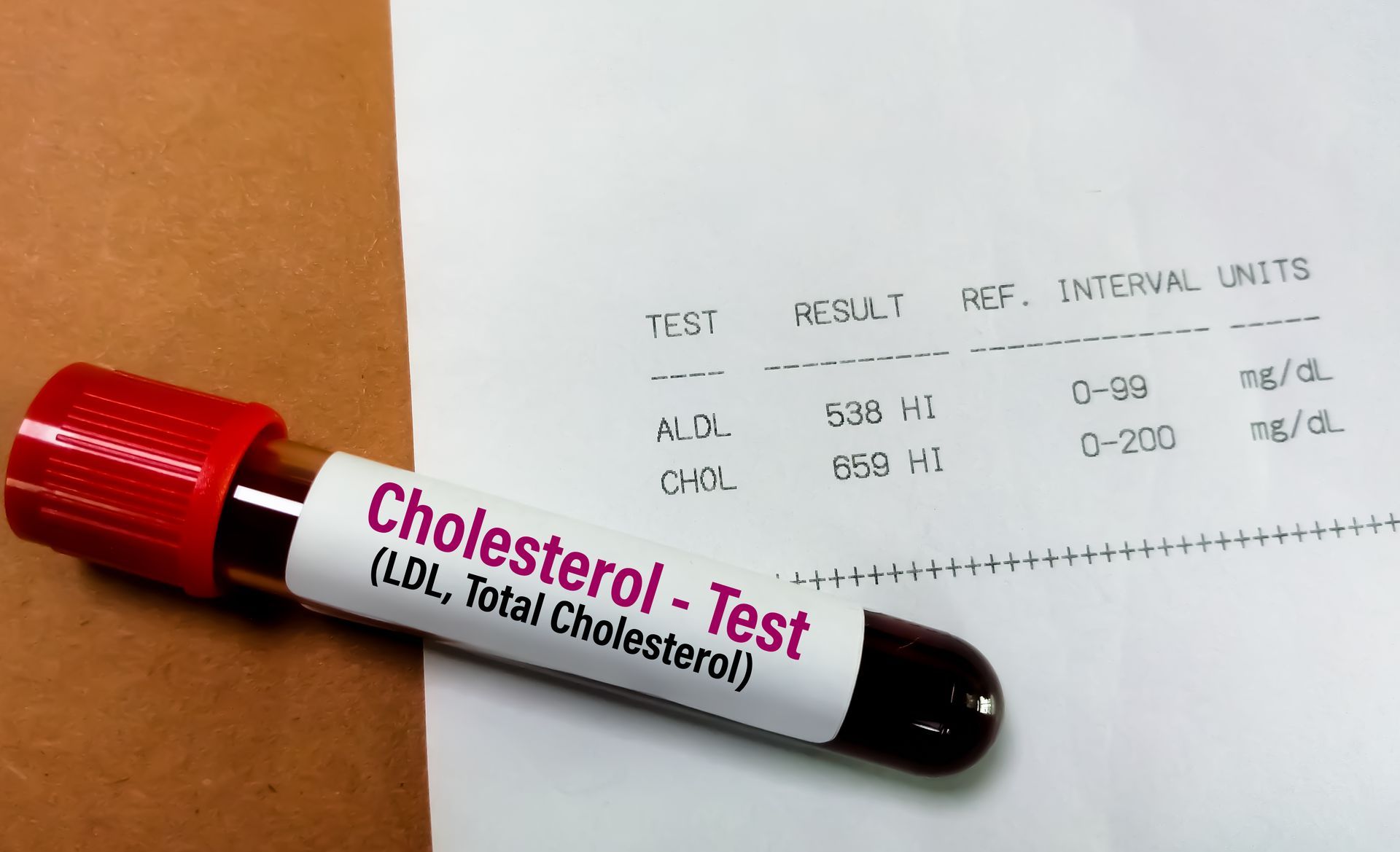Our Location
Elige tu idioma:
Diet Tips for Seniors with Type 2 Diabetes: Foods to Eat & Avoid

Outside, on a sunny afternoon, a 72-year-old Martha jots down her weekly menu. As she writes her lunch on Monday, her mind wanders to her recent Type 2 diabetes diagnosis. With this new factor to consider, she thinks twice and fondly looks back on all the foods she used to enjoy. It won’t be the same—but it’s not the end of the world.
As we age, our nutritional needs change, and when you add Type 2 diabetes to the mix, meal planning becomes even more critical. But don't worry! Managing your diet can become second nature with the right information and a dash of creativity.
Join us as we explore senior-friendly food choices that help keep your blood sugar levels in check, boost your overall health, and add new flavors to your plate. Remember, at Ocana Medical Center, we're not just here to treat you today—we're your partners in health for life.
Eat Smarter, Live Healthier
Understanding Type 2 Diabetes in Seniors
Type 2 diabetes is a condition where your body either does not produce enough insulin or becomes resistant to it. For seniors, this condition comes with its own set of considerations:
- Slower Metabolism: Aging slows metabolism, making blood sugar regulation less efficient.
- Medication Interactions: Various prescriptions can affect diabetes treatments and blood sugar levels, requiring careful management.
- Unique Dietary Challenges: Changes in appetite and dental issues can complicate balanced eating.
- Comorbidities: Seniors often deal with additional health conditions, such as heart disease and high blood pressure, alongside diabetes.
- Changes in Thirst Perception: Diminished thirst can lead to dehydration and shifts in blood sugar levels.
Fundamental Dietary Principles for Seniors with Type 2 Diabetes
With simple guidelines, seniors can create a proper diet for diabetes that steadies blood sugar levels and supports overall health. Here are some fundamental principles to keep in mind:
- Focus on Low Glycemic Index (GI) Foods: Foods with a low GI cause a slower rise in blood sugar.
- Eat Fiber-Rich Foods: Fiber is a senior's best friend when managing diabetes. Not only does fiber improve digestion, but it also slows down the absorption of sugars.
- Choose Lean Proteins: Lean proteins help stabilize blood sugar levels while supporting muscle health.
- Limit Saturated and Trans Fats: Consuming excessive saturated and trans fats can increase the risk of heart disease.
- Watch Portion Sizes: Pay close attention to portion sizes, especially carbohydrate-heavy foods. Eating smaller yet balanced meals throughout the day helps keep sugar levels stable.
- Stay Hydrated: Drinking water is often overlooked, but it’s essential for regulating blood levels.
- Consistency in Meal Timing: Sticking to a regular meal schedule can make a big difference in blood sugar management.
Foods to Eat
Which foods should you include in your diet? Here's a guide to filling your plate with friendly diabetic diets for seniors:
Non-Starchy Vegetables: These are rich in vitamins, minerals, and fiber while low in calories and carbs.
| Leafy greens (spinach, kale, collards) | Broccoli and cauliflower | Bell peppers |
|---|---|---|
| Carrots | Tomatoes | Cucumber |
Lean Proteins: These proteins support muscle maintenance and promote satiety.
| Fish | Skinless poultry | Lean cuts of beef or pork |
|---|---|---|
| Eggs | Tofu or tempeh |
Complex Carbohydrates: Choose whole grains and high-fiber options to help manage blood sugar.
| Quinoa | Brown rice | Whole grain bread or pasta |
|---|---|---|
| Sweet potatoes | Beans and lentils |
Healthy Fats: These are important for nutrient absorption and heart health.
| Avocados | Nuts and seeds |
|---|---|
| Olive oil | Fatty fish |
Fruits: These are naturally packed with vitamins and antioxidants that support overall health and can help reduce inflammation.
| Berries | Citrus fruits |
|---|---|
| Apples | Pears |
Dairy or Dairy Alternatives: These products are excellent sources of calcium and protein, both of which are essential for maintaining strong bones and overall health.
| Greek yogurt | Cottage cheese |
|---|---|
| Milk or fortified plant-based alternatives |
Foods to Avoid
No food is strictly forbidden, but some can make managing your blood sugar more challenging. Here are some foods diabetics should avoid:
Refined Carbohydrates: These can lead to quick spikes in blood sugar levels.
| White bread, pasta, and rice | Sugary cereals |
|---|---|
| Crackers and pretzels made with white flour |
Sugary Foods and Beverages: These provide empty calories and can dramatically affect blood sugar.
| Sodas and sweetened drinks | Candy and chocolate |
|---|---|
| Baked goods | “Natural” sugars |
Processed Meats: Preserved meats are often high in sodium and unhealthy fats.
| Hotdogs | Bacon |
|---|---|
| Deli Meats |
Fried Foods: Frying your food often adds unhealthy fats and carbs.
| French fries | Fried chicken |
|---|---|
| Doughnuts |
Full-Fat Dairy Products: These can be high in saturated fats.
| Whole milk | Full-fat cheese |
|---|---|
| Regular ice cream |
Alcohol: It can disrupt blood sugar control and affect certain diabetes medications. If you choose to drink:
- Do so in moderation.
- Always pair it with food.
- Consult your doctor first, as alcohol may interact with some medications.
Foods high in sodium: These can contribute to elevated blood pressure.
| Canned soups and vegetables | Packaged snack foods |
|---|---|
| Restaurant meals (often high in hidden sodium) |
Trans Fats: This can increase bad cholesterol and decrease good cholesterol. Always read labels and steer clear of products with “partially hydrogenated oils.” Often found in:
- Some margarines
- Packaged baked goods
- Certain brands of microwave popcorn
Meal Planning Tips for Seniors with Diabetes
Now that we’ve covered what to avoid and include in your diet, let’s focus on practical meal-planning tips that prioritize healthy choices:
- Master the Plate Method:
- ½ of your plate: non-starchy vegetables
- ¼ of your plate: lean protein
- ¼ of your plate: complex carbohydrates
- Plan Ahead:
- Take some time each week to plan your meals.
- Create a grocery list aligned with your meal plan to avoid impulse purchases.
- Prioritize Consistent Meal Timing:
- It helps to eat at consistent intervals throughout the day.
- Consider eating smaller, more frequent meals if that works better for you.
- Focus on Fiber:
- Consume preferably 25–30 grams of fiber per day.
- Fiber slows down digestion, preventing blood sugar spikes.
- Stay Hydrated
- Aim for 6–8 glasses of water daily.
- Staying hydrated can control blood sugar levels and curb unnecessary snacking.
- Include Healthy Snacks: Plan for 1–2 small snacks between meals if needed
- Balance Your Nutrients:
- Include protein, healthy fats, and complex carbs in each meal.
- This combination helps slow digestion and prevent blood sugar spikes.
- Be mindful of condiments and dressings:
- These can add hidden sugars and calories.
- Opt for homemade versions when possible, using herbs and spices for flavor.
Getting the Right Support for Your Diabetes Journey

Managing Type 2 diabetes in the elderly goes beyond just diet. Every person’s health needs are unique, and seniors often have additional health factors to consider.
Ocana Medical Center will always have your back when you need someone to rely on. Working together, we can fine-tune your diabetes management plan to fit your lifestyle, preferences, and health goals.
- Regular comprehensive physical exams ensure that any health changes are addressed early.
- We specialize in diabetic care, offering expert guidance on diet, medication, and lifestyle specially personalized for you.
- Stay ahead of potential complications with our preventive health screenings.
Don't hesitate to reach out with questions or concerns about your diet, medication, or any aspect of your diabetes management. Let's work together to keep you healthy and active as you enjoy the golden years to the fullest!
Healthy Eating Is Just the Beginning
“Respect. Compassion. Quality. Integrity. These are the values on which Ocana Medical Center was built. Our aim isn’t just to treat you today. We hope to earn your trust and be your healthcare provider for life.”
©2023 Ocana Medical Group, Inc.
USEFUL LINKS
GET IN TOUCH
Call Us Today
Send us Email
Our Location
Ocana Medical Center | All Rights Reserved.











